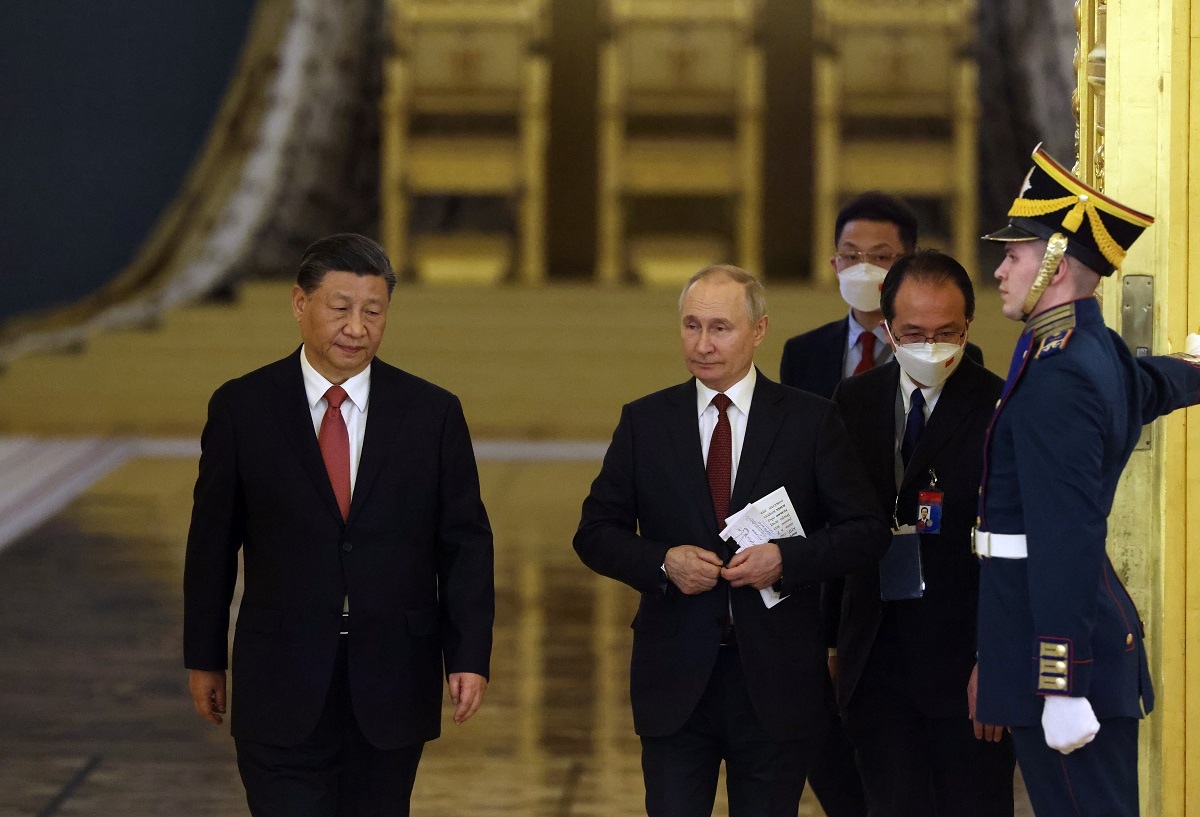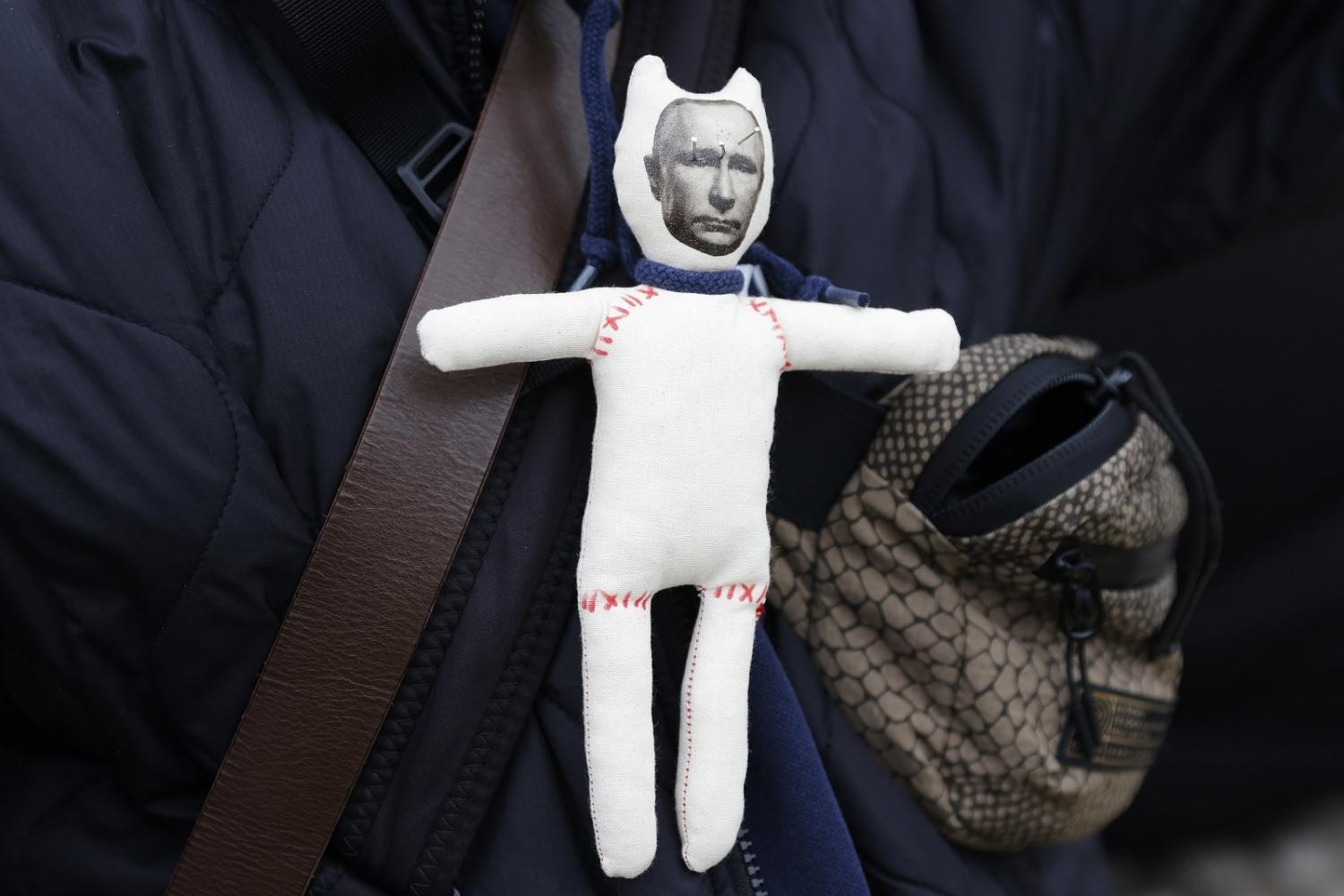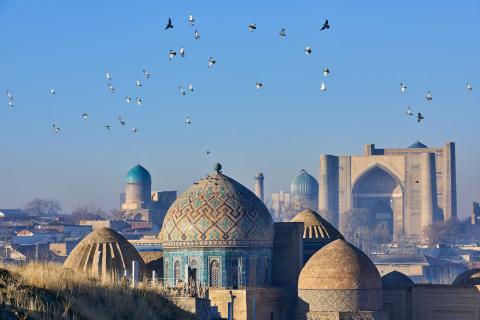Almost from the moment Russia invaded Ukraine, analysts have debated China’s role in the conflict. The fact that Xi Jinping met Vladimir Putin in Beijing only a few weeks earlier to announce their “no limits” strategic partnership led some to identify a new arc of autocracy, cemented by the personal bond between Putin and Xi. Others insisted that China and Russia remained fundamentally misaligned and that Beijing was blindsided by the invasion. More nuanced experts expected Beijing to face an impossible balance as it simultaneously sought to maintain its partnership with Russia, avoid EU and US sanctions, and be seen to support principles of non-interference and territorial integrity.
The war has affected China’s large portfolio of global interests, but not always negatively. China’s economy is suffering from the global economic downturn deepened by the war. Beijing is not happy to see Western states increasing their cooperation and voicing more concern for the future of Taiwan. But for now, the West’s attention and resources remain focused on Ukraine; and the military balance in the Indo-Pacific is still trending in China’s favour. Beijing will be disappointed to see its Russian partner becoming weaker and less stable, but an enervated Russia will be less of an obstacle to China’s expanding influence in Central Asia and more likely to acquiesce on bilateral issues, from energy and military technology transfers to longstanding territorial disputes.
If Beijing has struggled to balance these competing interests, it has not shown it. Rather, its policy has been remarkably constant: provide Russia with as much moral and practical support as possible without incurring any material costs for China. Economic support, including some dual-use exports, has grown. China has worn the reputational costs. But these have not been great. That’s evident in Washington’s shifting policy; away from seekincg to isolate China along with Russia and towards seeking re-engagement with China.

The Xi–Putin “bromance” is often cited as an explanation for China’s continuing support for Russia. There were more signs of personal affinity when they held their fortieth in-person meeting in Moscow in March 2023. But it is hard to believe that such ruthless leaders allow any such feelings to influence their foreign policy. Xi’s worldview, and Putin’s role therein, was, however, illuminated by his remark to Putin: “right now there are changes the likes of which we haven’t seen for 100 years – and we are the ones driving these changes together”.
Xi first referred to this “once-in-a-century major change” in an address to the Central Foreign Affairs Working Conference delivered in June 2018, about six months after the Trump administration’s National Security Strategy bracketed the United States and China together as America’s great power competitors. Xi appeared to be alluding to the First World War and its aftermath, and in particular to the transition of hegemonic power from the United Kingdom to the United States. The Chinese Communist Party has long viewed the next transition – from the United States to China – as inevitable. But its timeline was shortened by Donald Trump who, from Beijing’s perspective, both accelerated America’s weakening and extinguished hope that the next transition could take place smoothly.
So, for Xi, global instability is less a question of “if” or even “when” but “how”. To seize the opportunity presented by the “once-in-a-century” moment, China must take more risks. Xi hopes to prevail through brinkmanship – demonstrating to the United States and others that he is more willing to risk escalation than they are. So he has consistently rejected President Joe Biden’s call for “guardrails”, which he sees as a euphemism for maintaining the status quo.
Russia has played an especially useful role for China in its intensifying competition with the United States. For reasons best known to Putin, he has consistently put Russia at the vanguard of the supposedly common struggle: murdering dissidents abroad, meddling in US domestic politics, and engaging in military brinkmanship in third countries, in international airspace and in outer space. Xi may have told Putin that they were driving change “together”, but the costs of confronting the West have not been evenly shared.
There is no evidence that Beijing has encouraged Moscow’s aggressive behaviour but China has benefited, in two main ways.
First, Russian aggression has allowed China’s behaviour to more often pass under the radar. Although China’s global reputation has suffered in recent years, when compared to Russia it looks relatively benign, even to Americans. Notwithstanding the partisan competition to sound toughest on China, Americans remain more likely to see China as a competitor than an enemy and, conversely, more likely to see Russia as an enemy than a competitor. Unsurprisingly, antipathy to Russia spiked immediately after the invasion of Ukraine. But at the same time, the percentage of Americans who saw China as an enemy dropped (from 35% to 25%).
Second, China is learning useful practical lessons from Russian behaviour, including from the invasion of Ukraine. These encompass everything from the utility of economic sanctions and nuclear brinkmanship through to numerous lessons about modern warfare. The People’s Liberation Army is mitigating its lack of combat experience – its main weakness – through stepped-up military exercises with experienced Russian forces.
Many claims are still made about Putin’s “useful idiots” in the West, but it’s increasingly clear that he is not the grand puppet master many once feared. Russia is paying a heavy price for his foolhardy adventures. The only beneficiary is China. The Xi–Putin partnership is no bromance. Putin is Xi’s useful idiot. The real question is what Xi does as Putin becomes less useful.

